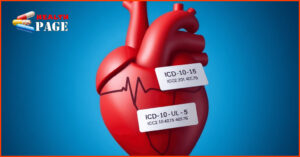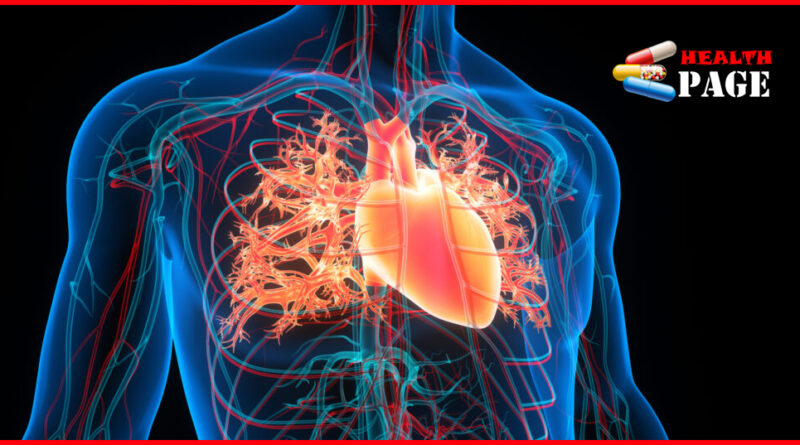Heart failure: 6 symptoms, 5 causes and 3 treatment options
Heart failure may sound unfamiliar, but it is a very common health problem in modern society.
According to the American Heart Association , more than 6 million Americans over the age of 20 suffer from it, and the risk increases with age.
Are you also ignoring your body’s warning signs?
Today, let’s talk about the symptoms, causes and effective treatments of heart failure to help you be more alert and detect and treat it early.
What is heart failure? The heart doesn’t stop working, it just doesn’t work as hard as it should
Simply put, heart failure is not when the heart stops beating, but rather when it cannot effectively pump enough blood to meet the body’s needs.
Under normal circumstances, our heart pumps about 5 liters of blood per minute, but the heart pumping capacity of patients with heart failure is greatly reduced, resulting in insufficient oxygen and nutrients for various organs in the body.
Some of you may wonder, why does this happen to the heart?
This is because the heart gradually loses its pumping function under long-term stress. Factors such as high blood pressure and heart disease can cause damage to the heart and even lead to heart failure.
6 symptoms of heart failure: Have you ever been affected?
The symptoms of heart failure do not appear overnight, and many people do not realize that there is something wrong with their body in the early stages.
The symptoms of heart failure can gradually worsen at different stages. In the early stages, it may be just mild discomfort. As the disease progresses, the symptoms will become more and more obvious.
Here are 6 common symptoms to check if you experience any of them:

1. Fatigue and breathlessness
This is the most common symptom. Many patients will feel that they are unable to recover their energy, and they will easily feel tired even during normal activities or walking, and may even have difficulty breathing.
As the condition worsens, your breathing may become rapid, even when you are calm.
2. Lower limb edema
Fluid accumulates in the lower part of the body, especially in the ankles and calves, causing noticeable edema.
This is because the blood cannot return to the heart smoothly, causing blood to flow back into the lower extremities, causing swelling.
3. Persistent coughing and wheezing
Some patients experience shortness of breath, coughing, and wheezing when lying flat.
This is because fluid flows back into the lungs, causing water to accumulate in the lungs and affecting normal breathing function.
4. Sudden weight gain
A rapid increase in weight in a short period of time is mainly due to excessive water accumulation in the body.
Fluid retention can quickly worsen overnight, adding to the body’s burden.
5. Insomnia and sleeping problems
People with heart failure often have difficulty breathing at night and may wake up frequently and have difficulty sleeping deeply.
6. Dizziness and confusion
The heart fails to pump enough blood, resulting in insufficient blood supply to the brain. The patient may feel dizzy or even confused.
5 Causes of Heart Failure: What’s Wrong with Your Heart?
There are many causes of heart failure, the five most common ones are as follows:
1. Hypertension
High blood pressure is one of the most common causes for it.
Long-term high blood pressure increases the burden on the heart, causes changes in heart structure, and ultimately leads it.
2. Coronary artery disease
The coronary arteries are the blood vessels that supply oxygen to the heart. When these vessels become blocked by fatty deposits, the heart is unable to receive an adequate oxygen supply, eventually leading to heart failure.
3. Heart disease or heart valve disease
Some heart diseases or heart valve diseases may affect the heart’s normal pumping function and may cause it as the disease progresses.
4. Diabetes
Diabetes not only affects blood sugar levels, but it also increases your risk of heart disease and high blood pressure, both of which can lead it.
5. High cholesterol
Excessively high cholesterol levels can cause arteriosclerosis, which affects the heart’s pumping efficiency and increases the risk it in the long run.
3 Treatment Options for Heart Failure: What Can You Do?
Fortunately, heart failure is not an untreatable disease.
With the advancement of medical technology, patients can effectively control their condition and delay the progression of the disease through a variety of methods such as medication, lifestyle changes, and surgery.
The following are 3 common treatments:
1. Medication
Drug therapy is the cornerstone of heart failure treatment.
Common medications include beta-blockers , ACE inhibitors , diuretics , etc. These drugs can help relieve symptoms and improve the heart’s ability to pump blood.
As treatment technology continues to advance, more and more drugs are able to effectively control the disease and help patients live a better life.
2. Improve your lifestyle
A healthy lifestyle is essential for people with heart failure.
Patients should follow a low-salt, low-fat diet, maintain a proper weight, and exercise regularly.
Quitting smoking, reducing alcohol intake, reducing stress, and getting enough sleep are key factors in managing heart failure.
3. Surgery and device treatment
For some severely ill people, surgery or implanted devices may be needed to help the heart function better.
Common procedures and devices include cardiac resynchronization therapy , implantable cardioverter defibrillators , left ventricular assist devices , etc.
Through these methods, the patient’s heart can regain some function and relieve symptoms.
Conclusion
Heart failure is a chronic disease, but it is not an invincible enemy.
With early detection, appropriate treatment and a healthy lifestyle, many patients can maintain a good quality of life and extend their lifespan.
If you experience any discomfort, especially symptoms such as shortness of breath and increased fatigue, do not ignore it. Seeking medical attention promptly is the first step in preventing and treating heart failure.



Pingback: What is the most obvious sign of myocardial ischemia? -
Pingback: What is ICU? It is the last checkpoint for patients
Pingback: what is Low blood pressure, cause, symptoms and treatment
Pingback: High blood pressure, sometimes no symptoms, be careful of heart disease! - Health Page
Pingback: When should you start taking antihypertensive drugs
Pingback: ICD 10 Atrial Fibrillation: A Comprehensive Guide
Pingback: ICD 10 Code AKI: Comprehensive Guidelines for Healthcare
Pingback: Why the Age+100 Blood Pressure Measurement Formula is risky
Pingback: Metformin: 7 Critical Facts About Side Effects, Weight Loss & Metformin 500 mg You Can’t Ignore